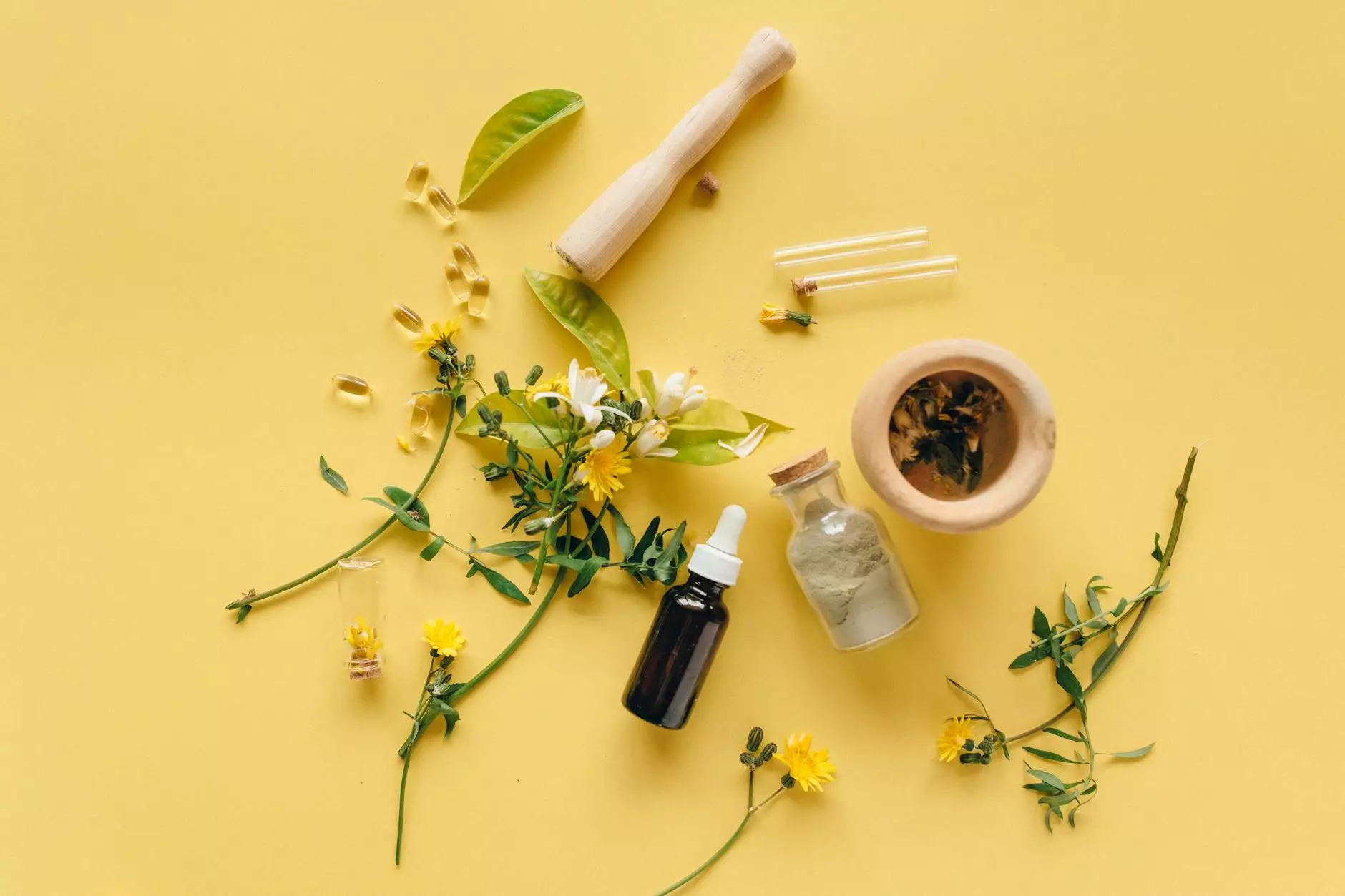Herbal Medicine
Fertility
Welcome to the Herbal Medicine category, brought to you by McKinnon Marie. In this comprehensive guide to alternative and natural medicine, we aim to provide you with valuable insights and information about the power of herbal remedies, holistic healing, and traditional therapies.
What is Herbal Medicine?
Herbal medicine, also known as herbalism or botanical medicine, is a practice that involves the use of plants and their extracts for medicinal purposes. This ancient healing tradition dates back thousands of years and has been utilized by various cultures around the world.
The Benefits of Herbal Remedies
Herbal remedies offer a wide range of benefits for improving health and well-being. Unlike pharmaceutical medications, which often come with unwanted side effects, herbal medicine is derived from nature and is generally considered safe and gentle on the body.
Some key benefits of herbal remedies include:
- Natural Healing: Herbal medicine harnesses the healing power of plants and their active compounds to promote natural healing processes within the body.
- Reduced Side Effects: Herbal remedies are generally well-tolerated and carry fewer side effects compared to synthetic drugs.
- Individualized Treatment: Herbal medicine practitioners consider the whole person and create customized treatment plans to address unique health concerns.
- Long-Term Results: By addressing the root cause of an ailment, herbal remedies can provide long-lasting relief rather than just temporarily alleviating symptoms.
Herbal Medicine and Holistic Healing
One of the core principles of herbal medicine is holistic healing. This approach considers the interconnection of the mind, body, and spirit, aiming to achieve optimal wellness by addressing the underlying causes of imbalances, rather than merely treating symptoms.
Herbal medicine practitioners take into account not only physical symptoms but also mental, emotional, and spiritual aspects of an individual's health. By fostering harmony and balance within the entire being, herbal medicine supports overall well-being.
Traditional Therapies and Herbal Medicine
Herbal medicine is often used in conjunction with traditional therapies to optimize health outcomes. This integrative approach combines the wisdom of ancient healing practices with modern medical advancements for a comprehensive and well-rounded treatment plan.
From acupuncture to massage therapy, traditional therapies work synergistically with herbal remedies to address various health conditions. By incorporating herbal medicine into your wellness routine, you can experience the benefits of both ancient wisdom and scientific advancements.
Exploring the World of Herbal Medicine
Herbal medicine encompasses a vast array of plants, each uniquely beneficial for different health concerns. Let's delve into some of the most popular herbs and their applications:
Echinacea (Echinacea purpurea)
Echinacea is widely known for its immune-boosting properties. It can help strengthen the body's defense mechanisms and reduce the frequency and severity of common illnesses such as the cold and flu.
Ginkgo Biloba (Ginkgo biloba)
Ginkgo Biloba has been treasured for centuries for its cognitive-enhancing abilities. It can support mental clarity, focus, and memory, making it an ideal herb for individuals seeking to improve their cognitive function.
Lavender (Lavandula angustifolia)
Lavender is a versatile herb renowned for its calming effects on the body and mind. It can alleviate stress, anxiety, and promote restful sleep. Additionally, lavender has mild analgesic properties, providing relief from headaches and muscle tension.
Turmeric (Curcuma longa)
Turmeric is a vibrant yellow spice widely used in herbal medicine for its powerful anti-inflammatory and antioxidant properties. It can support joint health, improve digestion, and boost overall immune function.
St. John's Wort (Hypericum perforatum)
St. John's Wort is a renowned herb for its mood-enhancing properties. It can help alleviate symptoms of mild depression, anxiety, and seasonal affective disorder.
How to Incorporate Herbal Medicine into Your Daily Life
Incorporating herbal medicine into your daily life can be a rewarding journey towards enhanced well-being. Here are some tips to get started:
- Consult a Professional: When considering herbal remedies, it's essential to consult with a qualified herbalist or healthcare provider who can guide you in selecting the right herbs and dosages for your specific needs.
- Start Slowly: Begin by incorporating one herb or herbal formula at a time, allowing your body to adjust and respond appropriately.
- Quality Matters: Choose high-quality, organic herbs to ensure their potency and minimize the presence of potential contaminants.
- Follow Recommendations: Adhere to dosage and usage instructions provided by your herbalist or healthcare professional.
- Maintain a Healthy Lifestyle: Herbal medicine works best when combined with a healthy diet, regular physical activity, and stress management techniques.
Final Thoughts
Herbal medicine is a treasure trove of natural remedies, deeply rooted in ancient wisdom and scientific research. By incorporating herbal remedies and practices into your life, you can embark on a path of holistic healing and well-being.
At McKinnon Marie, we are dedicated to providing you with the knowledge, resources, and highest-quality herbal products to support your health goals. Explore our extensive collection of herbal medicine and embark on your own transformative journey towards optimal health.




